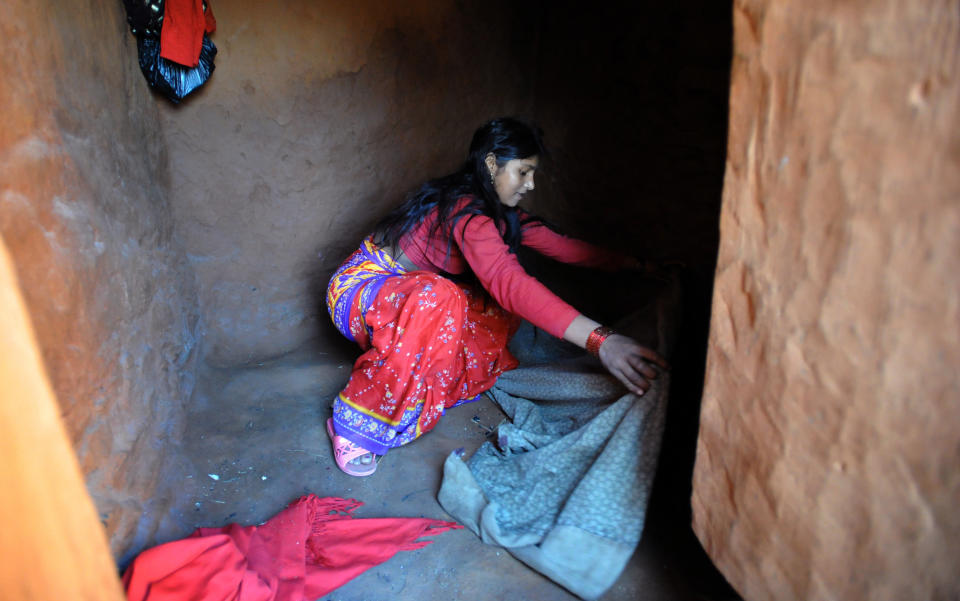Women Banished To Cowsheds During Their Period
It’s 2016, and women's health and human rights are still being threatened by the stigma around menstruation.
In parts of Western Nepal, women are banished from their homes to live in animal sheds while they have their periods, according to this video fromthe Guardian.
Following a Nepalese tradition called chhaupadi -- or “untouchable being” --, women are sent to live in a shed during menstruation or after they give birth due to their supposed impurity, according to the Guardian. Though the practice was outlawed in Nepal in 2005, it still occurs in certain regions of the country.
“Who wants to stay in a dirty place like this?” says Gita Rokaya, a woman in thevideo. “We don't want to live like this, but our gods won't tolerate it any other way."
The practice of chhaupadi is linked to strongreligious and cultural beliefs, according to the UN. Some people believe that if it is not respected, the gods may be angered, which could result in the death of livestock or destruction of crops.
Up to95 percent of womenin rural areas in Western Nepal are still subject to the practice, according to UN Women. It is considered a form of violence against women, as it poses a threat to women's physical and psychological health.
Women in areas that practice chhaupadi are often prevented from bathing, using the toilet or going to school during their periods. They are also segregated from the community, forbidden to enter their own homes or interact with others.
“I was embarrassed to tell my parents about my period,” says Safalta Rokaya, a young woman in the video. “I was scared that would mean staying in the cowshed. I feel horrible here. The cow dung smells and the animals step on us. When night falls men harass us.”

Some people insist the traditional practice cannot, and should not, be changed.
“If they go into the kitchen before their period stops, they will be possessed,” says Dhami Jhakari, a village healer and shaman, in the video. “Women don’t feel bad there. In fact the more they stay in the shed, the happier they are.”
But the women who undergo it would beg to differ. One woman lost a child to the flu after she and her baby were kept in a cold shed after she gave birth.
“After I lost my baby, my views on chhaupadi changed,” the woman, named Laxmi Raut, said in the video. “Women should stay at home during their periods.”
Nepal is not alone in its mistreatment of women around menstruation:countries around the world, from Malawi to the United States, have practices and policies -- such as making any talk of periods taboo, or taxing tampons -- that discriminate against women for an entirely normal and inevitable bodily function.
“We need to break the taboo and change the conversation around the most natural, normal time of the month,” said Miki Agrawal, the CEO of a period underwear company, in avideo. “It shouldn’t be stigmatized [or] embarrassing.”
H/TThe Guardian

